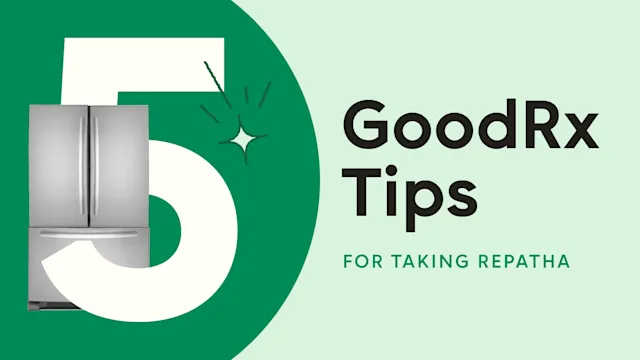Key takeaways:
Nexletol (bempedoic acid) and statins are both effective treatments for high cholesterol. But statins are the first-choice option for most people because they’re the most effective and affordable treatment option.
Nexletol is typically prescribed for those who aren’t able to take statins. It doesn’t have the same risk of muscle-related side effects, and it’s safe if you have mild or moderate liver or kidney problems, too.
You can also take Nexletol and a statin at the same time. Sometimes, a statin can’t lower your cholesterol levels enough on its own. Adding Nexletol can help get your cholesterol levels lower. But there are dosing limits for certain statins when they’re combined with Nexletol.
Nexletol is available as a brand-name medication. GoodRx can help you access Nexletol at an exclusive cash price of $231. A manufacturer savings card is also available. Most statins are available as lower-cost generics.
Save on related medications
When it comes to treating high cholesterol levels, statins are usually the first medication that comes to mind. But what happens if you’re unable to tolerate statins or they don’t lower your cholesterol levels enough? That’s where newer medications, such as Nexletol (bempedoic acid), come into play.
Nexletol is a new type of cholesterol medication that was FDA approved in early 2020. And if you’re comparing Nexletol versus statins, there are some helpful things to consider.
1. Statins and Nexletol work differently in the body
Statins and Nexletol both work by blocking enzymes (proteins) that help make cholesterol in the body. Nexletol blocks an enzyme called adenosine triphosphate-citrate lyase (ACL). Statins, such as atorvastatin (Lipitor) and simvastatin (Zocor), block an enzyme called hydroxymethylglutaryl-CoA (HMG-CoA) reductase.
But there’s a key difference in how Nexletol is activated in the body. Nexletol is a prodrug. This means it needs to be converted into its active form before it can start working. Nexletol is mainly activated in your liver, where cholesterol is made. It stays in its inactive form in other parts of the body. This means it’s less likely to affect areas outside your liver, such as your muscle cells, that can lead to side effects — more on that later.
2. Statins are generally more effective than Nexletol
Statins are considered a first-choice treatment for high cholesterol. They can lower cholesterol levels by more than 50%, depending on which statin and dosage you’re taking.
Nexletol lowers cholesterol levels by about 15% to 25% on its own. Nexletol is also available in a combination pill called Nexlizet that combines bempedoic acid and Zetia (ezetimibe), another non-statin cholesterol medication. It lowers cholesterol levels up to 15% more than Nexletol alone. Even though both Nexletol and Nexlizet have a smaller reduction than seen with statins, their impact on cholesterol is still significant.
What’s more, Nexletol and Nexlizet are the first oral cholesterol medications other than statins that have been shown to reduce the risk of heart attack and other heart-related complications. And they don’t seem to raise your blood glucose (sugar) or raise the risk of diabetes the way that statins can.
3. Nexletol may be an option if you’re unable to tolerate statins
Even though statins are the first-choice treatment option for high cholesterol, some people are unable to take them. This could be due to side effects, such as muscle pain or fatigue. Or it could be due to liver or kidney problems that make statins an unsafe choice.
In most cases, your prescriber will want you to try at least two different statins before deciding that you’re unable to tolerate them. That’s because each statin affects the body differently. So if one causes problems for you, it’s worth trying a different one to see if it’s a better fit before you give up on statins completely.
- AtorvastatinGeneric Lipitor
- FluvastatinGeneric Lescol
- LovastatinGeneric Mevacor
But if you find that you’re unable to tolerate statins, Nexletol and Nexlizet are alternative treatment options. They’re FDA approved to help lower cholesterol in people unable to take statins who are at high risk for heart disease. As mentioned, since Nexletol is mainly activated in the liver, it doesn’t seem to cause as many muscle-related side effects as statins. It’s also safe if you have mild or moderate liver or kidney problems. If your liver or kidney problems are severe, your prescriber will determine if it’s a safe option for you.
4. You can take statins and Nexletol together
Nexletol is also a treatment option if statins aren’t working well enough on their own.
In some cases, especially with inherited forms of high cholesterol, even the highest dose of the strongest statin isn’t enough to lower cholesterol to a healthy level. Since they work on different enzymes, adding Nexletol to a statin can help lower your cholesterol levels 15% to 20% more than with a statin alone. And adding Nexlizet to a statin can lower cholesterol levels by an additional 38%.
That being said, Nexletol and Nexlizet can interact with certain statins. This interaction can raise statin levels in the body and increase your risk of muscle-related side effects. You shouldn’t take Nexletol with simvastatin dosages over 20 mg daily or pravastatin (Pravachol) dosages over 40 mg daily.
5. Nexletol still has some side effects to consider
We’ve mentioned that Nexletol is a treatment option if you’re unable to tolerate statins. And in general, it’s a well-tolerated medication. But Nexletol still has risks of its own to consider.
Nexletol can increase uric acid levels in the blood, which could raise your risk of developing gout. And in rare cases, Nexletol may increase your risk of a tendon injury. This is more likely if you’re taking other medications with this risk, such as fluoroquinolone antibiotics.
Your prescriber will take these risks into account when deciding if Nexletol is a safe treatment option for you. But be sure they know your full medical history, and let them know if you have a particular concern you’d like to talk about before taking Nexletol.
6. Nexletol is only available as a brand-name medication, while many statins have a lower-cost generic
Nexletol and Nexlizet are currently only available as brand-name medications. If you have commercial insurance, you may be eligible to pay as little as $10 per prescription using a savings card from the manufacturer.
You can also save with GoodRx. Anyone with a valid prescription, regardless of insurance status, can use GoodRx to purchase a 30-day supply of Nexletol or Nexlizet at an exclusive cash price of $231.
Most statins are available as lower-cost generics. So they’re often a more affordable option than Nexletol or Nexlizet, especially if you’re uninsured or underinsured. And GoodRx can help you save on the cost of statins with a free discount card.
Be sure to let your prescriber and pharmacist know if the cost of your medication is a concern for you. They can help ensure your treatments are within your budget and assist you with finding any available savings options.
The bottom line
When it comes to treating high cholesterol, Nexletol (bempedoic acid) and statins are both effective options. But statins generally work better at lowering cholesterol, so they’re the first-choice treatment option for most people.
Nexletol is available on its own or combined with Zetia (ezetimibe) in the combination medication Nexlizet. Nexletol and Nexlizet are typically prescribed if you can’t take statins or are unable to tolerate their side effects. They’re the only oral cholesterol medications other than statins that have been shown to reduce your risk of heart-related complications. And they cause less muscle-related side effects too.
You can also take Nexletol or Nexlizet along with a statin in some cases. This combination can help lower your cholesterol better than a statin alone. But there are dosing limits for certain statins when they’re combined with Nexletol-based medications.

Why trust our experts?



References
Alonso, R., et al. (2019). Diagnosis and management of statin intolerance. Journal of Atherosclerosis and Thrombosis.
American Heart Association. (2024). What is cholesterol?
Centers for Disease Control and Prevention. (2023). Medical options for people with familial hypercholesterolemia.
Chandramahanti, S., et al. (2023). Bempedoic acid. StatPearls.
Esperion Therapeutics, Inc. (2024). Nexlizet [package insert].
Esperion Therapeutics, Inc. (2024). U.S. FDA approved broad new labels for Nexletol and Nexllizet to prevent heart attacks and cardiovascular procedures in both primary and secondary prevention patients, regardless of statin use.
Grundy, S. M., et al. (2022). Guidelines for the management of high blood cholesterol. Endotext.
Jialal, I., et al. Bempedoic acid, an inhibitor of cholesterol biosynthesis, reduces cardiovascular events. Journal of Clinical Medicine.
National Lipid Association. (2024). Bempedoic acid.
Stoll, F., et al. (2022). Drug treatment of hypercholesterolemia in older adults: Focus on newer agents. Drugs & Aging.
Thompson, P. D., et al. (2016). Treatment with ETC-1002 alone and in combination with ezetimibe lowers LDL cholesterol in hypercholesterolemic patients with or without statin intolerance. Journal of Clinical Lipidology.














